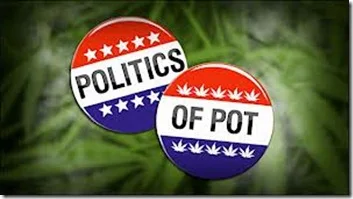
Good Day World!
Here’s an interesting story to go with the season. A ghostly nod to Halloween, which is a mere five days away:
Paranormal investigator Joe Nickell has busted a lot of ghostly myths over the past 40 years — but the spookiest part of his job comes when he actually catches a ghost red-handed.
No, we're not talking about spirits of the dead: These "ghosts" are hotel clerks who flick the lights to keep the guests talking about the place's ghost story, or a mischievous child who plays tricks on his parents. Or maybe a camera crew catching weird-looking "orbs" floating through the frame — orbs they didn't notice until they looked at the pictures later.
"Much of what so-called ghost hunters are detecting is themselves," Nickell, the author of "The Science of Ghosts," told me this week. "If they go through a haunted house and stir up a lot of dust, they shouldn't be surprised if they get a lot of orbs in their photographs."
The orbs are actually out-of-focus reflections from a camera flash, created by dust particles floating in front of the lens. The clumping noises that ghost hunters hear often turn out to be the footsteps of crew members elsewhere in the building, or even someone on a stairway next door. And those weird readings they pick up with thermal imagers? They're typically left behind by the flesh-and-blood visitors.
Tracking down the truth behind spooky sightings is a tough job, but somebody's got to do it, Nickell said.
"It takes only a moment for someone to say that they saw something," he said, "but it can take a huge expenditure for someone to fly somewhere, and they might never re-create that one little moment."

Nickell, a former professional magician and detective, has been that someone for Skeptical Inquirer magazine and the Committee for Skeptical Inquiry since the 1970s. "I've been in more haunted houses than Casper," he joked. And the truth is that there are worse jobs in the world.
"I wouldn't want anyone ever to know this, but it really is a great deal of fun to do what I do," Nickell said.
In "The Science of Ghosts," Nickell spins a series of tales about his worldwide travels. His first haunted-house investigation, in 1972, took place at Toronto's Mackenzie House, where residents reported seeing apparitions hovering over their bed, and hearing footsteps when no one else was in the house. Nickell ascribed the apparitions to "waking dreams," a phenomenon that leads people to see things when they're half-asleep or in an idle reverie. And as for those footsteps: Nickell found out that there was an iron staircase in the building next door. The strange sounds were traced to a late-night cleanup crew tromping up and down those stairs.
Nickell learned a lot from that first case. "You must go on site, and you must investigate just like any other piece of detective work," Nickell said. "You can treat the house as a sort of crime scene."
Other cases involved spirit photographs, such as the ones that show orbs or bright streaks. One family called Nickell in to explain a series of pictures that showed bright, hazy loops of energy in the foreground. Nickell eventually figured out that the loops were created when a flash bounced off a camera strap dangling in front of the lens. "Now we know about the camera-strap effect," Nickell said.
Nickell also takes on psychic mediums who claim to speak with the dead. In the book, he traces his encounters with TV-show medium John Edward, who uses so-called "cold reading" techniques to draw information out of a crowd. (For example, "I feel like someone with a J- or G-sounding name has recently passed. ...")
"The people who profess to be able to talk to the dead tend to be either fantasy-prone personalities, or charlatans, or possibly a bit of both," Nickell declared. "They would be harmless if they didn't mislead so many people."
Nickell totally understands why a belief in ghosts and the afterlife is so important to people. "If ghosts exist, then we don't really die, and that's huge. ... It appeals to our hearts," he said. "We don't want our loved ones to die. We have this whole culture that we're brought up with, that encourages this belief in ghosts."
Once a ghost story gets attached to a place or a situation, then almost anything that happens can be interpreted as supporting that story, he said. That's one reason why ghostbusting can be a thankless job. Another reason is that it's so hard to wrap your arms around the evidence — or, more appropriately, the lack thereof.
"No one is bringing you a ghost trapped in a bottle," Nickell said. "What they're offering is, 'I don't know.' Over and over, they're saying something like this: 'We don't know what the noise in the old house was, or the white shape in the photo. So it must be a ghost.' These are examples of what's called an argument from ignorance. You can't make an argument from a lack of knowledge. You can't say, 'I don't know, therefore I do know.'... If I could just teach people a little bit about the argument from ignorance, I think we could give the ghosts their long-needed rest."
Do you agree? Or do you have some truly spooky ghost stories to share for the Halloween season? (source)
Time for me to walk on down the road…



